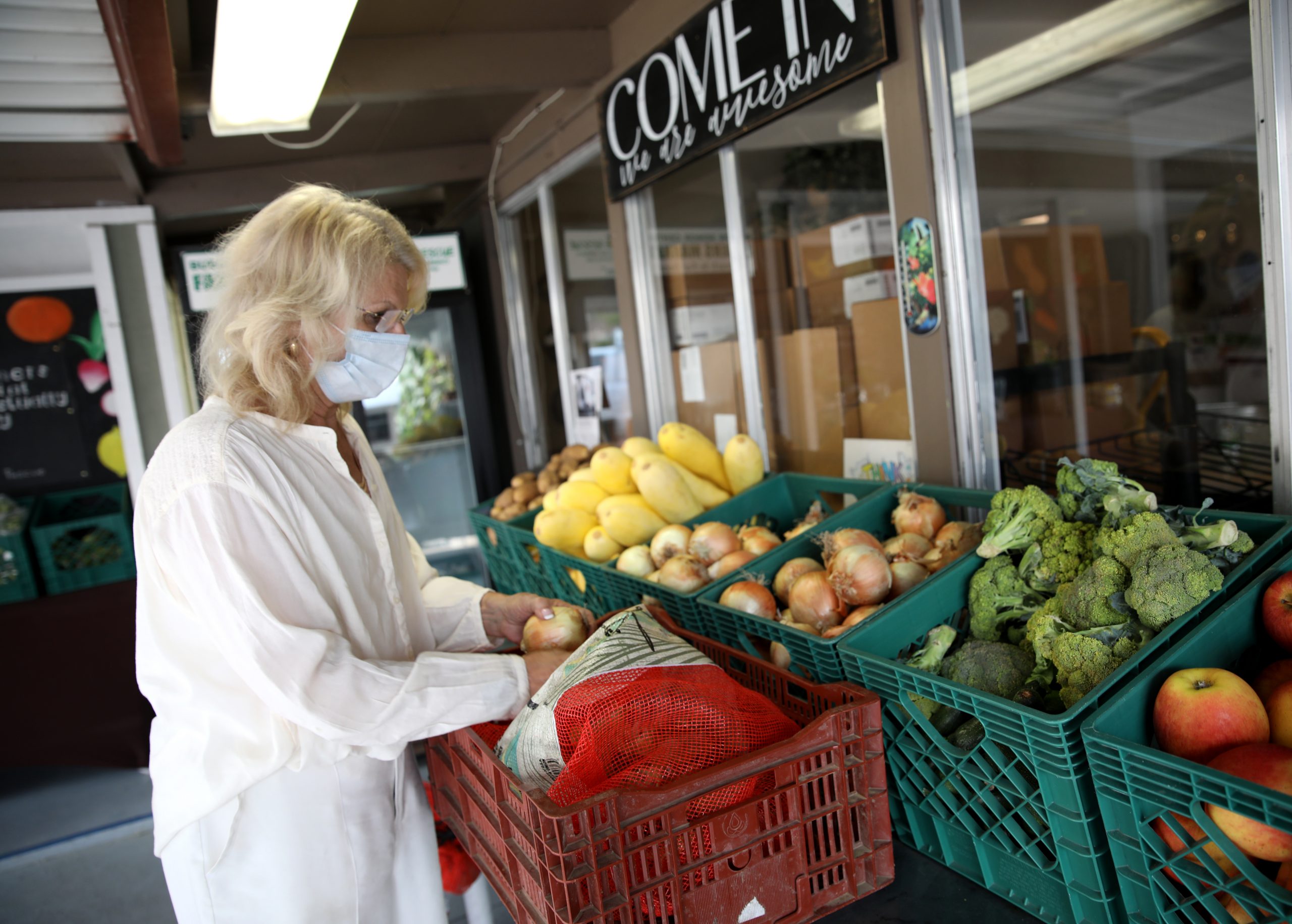By Sara Arsenault, Sara Neagu-Reed and Erin Huston
for California Farm Bureau
As the COVID-19 pandemic continues to disrupt lives and livelihoods, Congress passed and President Trump signed a package of stimulus measures intended to help Americans cope. The 5,500-page package contains many provisions important to California farmers, ranchers and rural residents.
The stimulus provisions include $13 billion in assistance to help U.S. livestock, poultry, dairy and crop farmers recover from COVID-19 disruptions.
The package commits no less than $1.5 billion to purchase food and agricultural products for distribution to people in need — especially fresh produce, meat and dairy products. Money from the same fund may also be used for loans and grants to small and midsized food processors or distributors, farmers markets and individual producers to respond to COVID-19, including measures to protect employees.
The new package includes adjustments to the existing Coronavirus Food Assistance Program for farmers and ranchers whose operations were directly affected by the pandemic. It adds funding to the existing Specialty Crop Block Grant Program and Local Agriculture Market Program to address challenges caused by COVID-19.
The stimulus package adds another round of funding for the Paycheck Protection Program to help small businesses keep employees on their payrolls. The program has been improved for farmers who file as sole proprietors and has expanded eligibility to businesses that suffered at least a 25% cut in year-to-year gross revenue, rather than 50%.
The PPP will now include costs to adapt to the pandemic — including purchase of personal protective equipment for employees — among eligible expenses (see story). The program has been modified to serve the smallest businesses and better assist independent restaurants. The PPP program still does not allow farm labor contractors to apply; Farm Bureau will continue to advocate for their inclusion.
In provisions affecting the livestock and meat sectors, the stimulus package provides $1 billion for contract livestock and poultry growers, to cover up to 80% of pandemic-related losses. It provides for payments to producers who lost livestock and poultry due to insufficient processing capacity during the pandemic, and includes additional inventory-based payments for cattle ranchers. The bill provided $60 million for meat and poultry processors to help them qualify for federal inspection and interstate shipments.
The package contains a number of wildfire-related provisions, including $3.7 billion in wildfire funding; of that, $2.5 billion represents an emergency fund for fire suppression, should other money run out. The law also directs federal agencies to estimate the federal investment required to treat and restore all the acres classified as being at high or very high wildfire risk.
Farm Bureau will continue to advocate for reauthorization of the Wildfire and Hurricane Indemnity Program Plus, for farmers and ranchers who have suffered losses from wildfires and other natural disasters; WHIP+ was not included in the stimulus package.
Water-related provisions in the package included Water Infrastructure Improvements for the Nation Act recommended funding for a number of California water projects, such as Sites Reservoir, Friant-Kern Canal and Delta-Mendota Canal improvements, the Sacramento regional water bank and others. The package provides $5.1 million for Klamath River habitat conservation.
The California Farm Bureau will be monitoring the implementation of stimulus programs in the coming weeks and months, to assure California farmers, ranchers and their employees can apply for and make use of the programs as needed. We will continue to advocate for programs that can speed rural California’s recovery from the pandemic and other disasters.
Sara Arsenault is director of federal policy, Sara Neagu-Reed is associate director and Erin Huston is a federal policy consultant for the California Farm Bureau.








